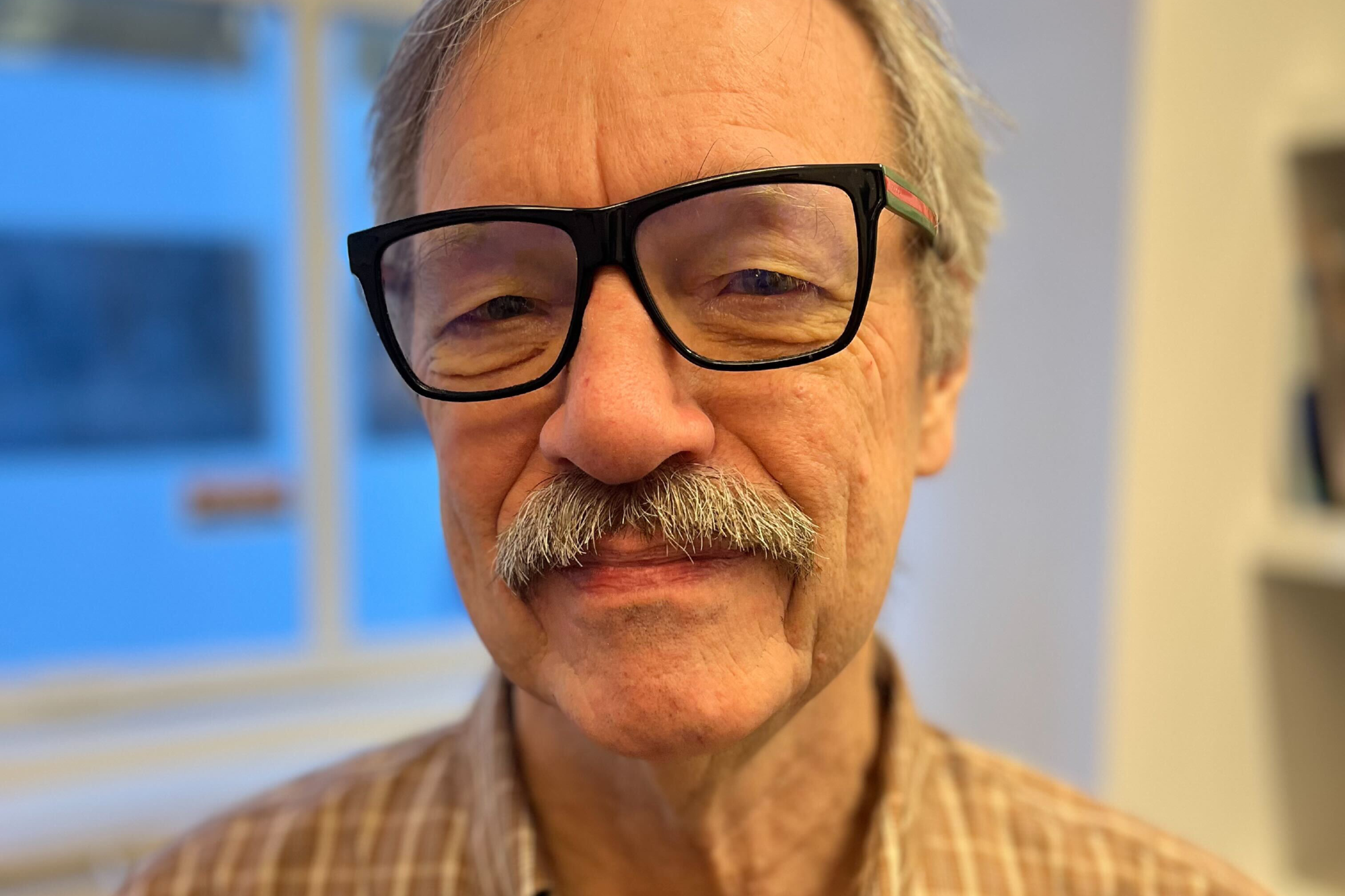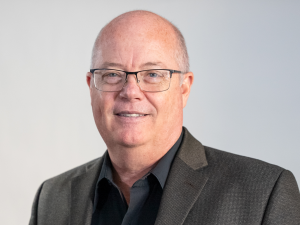As we’ve been discussing recently, homelessness in the U.S. is still on the rise. In fact, rates have been climbing nationally by about 6 percent every year since 2017, according to the National Alliance to End Homelessness.
That uptick coincides with soaring housing costs and rising prices for necessities like food and transportation.
As we work to chip away at the homelessness crisis, one of the often overlooked components is data collection. Collecting the right data is critical in helping us understand the issue and deploy our resources more efficiently.
Quality data, of course, enables communities to tailor solutions to people’s specific needs so they can exit homelessness.
To help us better understand the importance of data and the complexities surrounding homelessness on a national scale, Steve Berg, chief policy officer at the National Alliance to End Homelessness is on the show today. Steve is an expert in the field of homelessness and housing policy. He has dedicated much of his career to advocating for effective policies and strategies to address homelessness in the U.S. And he’s written extensively on various ways addressing the primary need for housing for people experiencing homelessness leads to stability and better health.
Show highlights include:
- Why Steve Berg is passionate about ending homelessness.
- Key reasons why homelessness has persisted and worsened in some areas.
- Policy priorities and initiatives that the National Alliance to End Homelessness focuses on.
- How data is collected on homelessness in the U.S.
- Potential ways to improve on data collection processes.
- What we can learn from veteran homeless programs and apply to the general homeless population.
- What Housing First is and how it contributes to addressing homelessness.
- Policy changes and initiatives that show success in reducing homelessness.
- What role communities and local governments play in tackling homelessness.
- How you can contribute to the solution and accelerate the progress toward ending homelessness.
Listen and subscribe to the Do Gooders Podcast now. Below is a transcript of the episode, edited for readability. For more information on the people and ideas in the episode, see the links at the bottom of this post.
* * *
Christin Thieme: Well, Steve, welcome to the Do Gooders Podcast. Thank you so much for joining with us today.
Steve Berg: I’m happy to be here. Thanks for having me.
Christin Thieme: So you are, you could say, immersed in the world of trying to make an impact on homelessness in our country. Can we start out with just why is this an area that you personally are passionate about?
Steve Berg: Well, I’ve started my career as a legal aid lawyer, helping people who were getting evicted from their apartments and things like that. And that was in the early 1980s when homelessness became much more prevalent in many places around the country. And it just seemed like working in a community that was affected by it—I could see there were solutions to this problem, we didn’t have to have this going on, and so I just got involved for various reasons. An opportunity came up to work in Washington DC on some of the policy work, and so I got involved in that.
Christin Thieme: And here you are today.
Steve Berg: Yes.
Christin Thieme: Still working at it. Homelessness is an incredibly complex problem obviously with host of contributing factors. And to make it even more complicated, it looks a little bit different in each community. Can you help us understand some of the key reasons why you think homelessness has persisted and maybe even worsened in some areas?
Steve Berg: Homelessness is obviously people don’t have housing, people don’t have places to live, and there are lots of things that contribute to why certain people are the people with no place to live, but the overall issue of lots of people not having a place to live, that’s basically a housing problem. Housing in the United States is something that most people just buy or rent on their own, it’s a commodity that there’s a market for, but the effect of that is that people that don’t have very much money have a hard time affording it. And the problem has gotten steadily worse really since the end of World War II, so 70 years ago.
For 70 years, the rent at a modest apartment has gone up faster than the wages at a modest job, and it’s gone up faster than disability benefits for people with disabilities. So slowly but surely that’s just overwhelmed the ability of people with those low wage jobs or with those disabilities to be able to afford a place. Then once they’re homeless, all kinds of problems get worse. So to help those people get out of homelessness, it takes housing, but for a lot of them it takes more than that, so that’s where the complexity comes in, I think.
Christin Thieme: Definitely. Now, as Chief Policy Officer, you work on advocating for policies to end homelessness. Can you share a little bit about your work and maybe some of the key priorities and initiatives that the National Alliance is currently focused on?
Steve Berg: Sure. And we work with the federal government mostly in a few states. We’re probably going to be involved in a little more state policy work over the next few years, but mainly we’ve historically worked with the federal government to try to get better funding for the various programs that help communities deal with the problem, and then at the same time work with individual communities to help them implement those solutions. And a lot of it is focused, as I said before, on housing, on making sure that people are able to afford what housing exists, that there’s more housing that’s affordable to people with the lowest incomes. But then also, like I said, for people homeless now there’s other kinds of problems people are dealing with. So I personally and we at the Alliance have worked on getting better funding for mental health programs, for substance abuse treatment programs to make sure that those kind of things are available, treatment is available to people, and it’s well coordinated with housing solutions that are also available. So that’s the goals.
And I would say over the years we’ve made some progress at doing that. I think there’s more housing available now for people who are homeless than there was 20 years ago. There’s better funding for healthcare services, for mental health treatment, for substance abuse treatment than there was 20 years ago, but we still got a long way to go, and I think it’s going to be important over the coming years that we continue to make progress on the funding side and at the same time help communities understand the best way to use the money to get good results.
Christin Thieme: Do you think homelessness is a solvable issue?
Steve Berg: Absolutely. No question about it. I think that if we do those things, put the money for housing and related services on the table and work with communities to implement those in a good way, it’s absolutely solvable. The problem is the things I just described, they cost money, and it’s important to get people in positions of leadership and at various levels of government to understand that that’s money well spent and it brings about good results that everybody wants to see. I think there’s very strong public support for the kinds of things I’m talking about, because I think since COVID started, one of the impacts of that was more people outside, a lot of communities had shelters where people were homeless to go and stay inside, but because those were often overcrowded and in situations where they were dangerous for people getting COVID, a lot of people moved outside or a lot of places had to shut down some of their shelters, and more people are visible.
So while homelessness is getting worse because of the worsening housing problems, it’s also becoming more visible because of that. And I think the public sees this and they want something done about it. And I think most people get that even though there are some loud voices that say it’s all the homeless people’s fault and we should just find some way to get rid of them, that is not really what works. What really works is getting the solutions in place and getting them funded at the level where they need to be funded and then turning that over to people who are working so hard in their communities to make that happen.
Christin Thieme: Absolutely. Obviously, for us to understand any issue including homelessness, we need to have reliable data on the issue. Can you give us a bit of an overview on the primary ways that we collect data specifically on homelessness in the US?
Steve Berg: Yes. There are a couple of things that a couple of different government agencies do that they ask communities to do when the government agency sends money to local communities. One of the things that we ask local communities to do is to come up with some data about homelessness and what’s going on there. So we’ve got HUD asked communities to do an annual point in time count, which tells you each year how many people are homeless in that community, how many people are in shelter, or are living on the streets. And that, as I said, it gets done once a year, so you can look at that data going back to 2007 I think is where the first reliable one came out, and you can see each year for the country as a whole and for each community how many homeless people there were.
So that’s helpful in knowing, getting a big view of progress you make. The Department of Education asks local schools to keep track of data. That data is a little broader and includes people who are living in houses or apartments, but where their situation is not necessarily real stable. So that’s different people will argue about whether somebody like that is really homeless or not, but even if you don’t think they’re homeless, people in that situation are very likely to become homeless in short order. So whatever you think of what your definition of homelessness is, it’s important to understand who’s in that unstable housing situation, because prevention I think is a key part of keeping the problem from getting worse.
And then beyond that, I think a lot of communities collect data about the impacts of homeless programs on people who are homeless, how many people are coming into the program, how many people are served each year by the programs, are people leaving shelter or leaving the streets and going into housing, are they staying housed or are they becoming homeless again right away, that data is collected community by community, some communities are better at collecting that data than others, but every program is asked to try and they collect that data. They don’t report all those things to the federal government because I think there’s a certain resistance to sending too much individual data about people who are homeless to the federal government, and then who knows how that’ll be used.
But local communities, I think, have that data themselves and they can use that to assess how their homeless programs are doing and how their housing market is doing, how many people are becoming homeless that way. So there’s a lot of data out there. It’s just there can be challenges in using it in a way that really helps you solve the problem, because I think a lot of that work has to be done at the local level, and some communities do a really good job of that, and others are still starting to figure it out.
Christin Thieme: It’s such a behemoth of a task to try to collect all of that. One of the things I know that you’ve written is that veteran homeless programs are generally considered to be the gold standard in preventing homelessness and housing those who are experiencing it. Can you explain some of the reasons behind this and what, if anything, we can borrow from these programs to apply more generally?
Steve Berg: Yeah, for sure. One of the clearest reasons is just there’s a lot more subsidized housing out there for veterans. There’s a whole program called the HUD-VASH program, the HUD-VA Supportive Housing program that Congress has been putting new money into every year for the last 12 or 15 years, I think, that means that if a veteran needs a permanent rent subsidy, they’re much more likely to be able to get one than somebody who’s not a veteran if they’re homeless in either case. So there’s that. The second thing is that the VA, the Department of Veterans Affairs, runs a massive healthcare system, and the housing programs are located within the healthcare system at the Department of Veterans Affairs. So the issues of coordinating between the healthcare and the housing programs, they’re not perfect, but it’s just a lot easier to coordinate those systems than outside of the veterans world where you’ve got hospitals that if they get federal funding, it’s from one totally separate agency, and the housing programs are grants from the Department of Housing or development to local nonprofit organizations, and they don’t have necessarily any requirement to coordinate with each other.
They try really hard to do that in local communities, but with veterans it’s more of a natural coordinating system. So I think those are some of the main things. And then just the final thing is just a lot of the problems we have dealing with homelessness is there’s a certain amount of, I talked before, public unwillingness to deal with the problem in a compassionate and humane way, and I just think that’s less of a problem with veterans. I think people are more willing to say, “The veterans have served this country and now they’re having a hard time. We should do what we can to help them.” Where I feel that way about anybody who’s homeless, and I know a lot of people who work in your network do too, but I’m afraid there’s people who don’t and that’s part of the problem why getting some of the funding to scale for some of these programs is still an issue.
Christin Thieme: And that coordination, like you said, makes a big difference. One of the things we hear a lot about when it comes to the fight against homelessness is this idea strategy of Housing First. Can you shed some light on what exactly is Housing First and has it contributed to the issue of solving homelessness at all?
Steve Berg: Yeah, I think that phrase gets used in a couple of different ways by different people. The way we use it at the Alliance is to describe a systemic local approach to homelessness that involves having shelters and other kinds of temporary solutions to help keep people safe while they’re homeless, but to have the entire local system really concentrating on getting as many homeless people into housing as quickly as possible. And for some people that requires different things. Some people who are homeless, especially in the kind of job market where we have now where a lot of people are working in homeless, they don’t need much else besides housing. If they can get help getting into housing and sometimes a short amount of housing subsidies just to get them on their feet, that’s really all they need. They’ll continue to go to work, they’ll be able to pay the rent themselves, and they won’t be homeless anymore. Other people need a lot more than that because they have other kinds of problems, mental health problems.
Mental health issues are present in the homeless population more than they are in the regular population. Addiction, the same thing. So people dealing with those kinds of conditions are going to not be homeless anymore. They need housing, but then they also need other kinds of help. And that help’s got to be available. As I said before, available, funded sufficiently and well coordinated with the housing system. But Housing First is really a focus on that end goal that homeless people need to not be housed to not be homeless anymore is housing. And many may need other things, but the housing is the first priority in terms of how to put a system together. The other thing is that the housing programs are much worse funded than a lot of the other kinds of programs.
Healthcare programs for low-income people are funded through an entitlement program, which is Medicaid. And Medicaid isn’t perfect, but it does fund a pretty comprehensive range of healthcare for low-income people who are eligible. Whereas the federal housing programs, they have funding for about a quarter of the people who are eligible. And that’s been the case for as long as these housing programs exist. So in some ways, Housing First is also just our own little challenge to people like the federal government to put the money on the table for housing rather than thinking you can solve homelessness without dealing with the underlying housing problem.
Christin Thieme: In your time working in this arena, are there any specific policy changes or initiatives that you believe have been particularly effective in reducing homelessness at any level, federal, state, or local?
Steve Berg: Yeah. I think you mentioned the veterans programs before, and I think the advent of the HUD-VASH program providing vouchers really targeted to veterans who have the most severe disabilities and been homeless for a long time, that’s made a big difference, because those are people, if they’re homeless now and they have a severe disability, they’re likely to stay homeless for a long time. So if you focus on them and what kind of resources they need in order to get out of homelessness permanently, that’s going to have a big issue on how many people are homeless overall. And the VA has other programs that are shorter term housing subsidy programs that have helped a lot of veterans who don’t have such clear problems get off the streets and get into housing where they can get their lives together and continue working.
So I think the veterans work has been a big area of progress. I think a lot of individual communities have developed homeless systems that work really well to move people rapidly into housing. Although the long-term increase in rents has put that at risk now, I think. And over the coming years I think that the challenge is going to be much more can we decide as a country that for people with the lowest incomes that housing is going to be something they can count on having rather than just living on the streets if they’re working a low wage job.
Christin Thieme: We’ve been talking about this at a bird’s eye view really, and that’s really your vantage point at the Alliance. But, of course, it’s not just an issue, these are individual people who are experiencing not having a house. So can you share any story or experience from your work that maybe has particularly left an impact on you and reinforced your commitment to ending homelessness?
Steve Berg: I am fortunate to have chances to talk to people who have been through this experience who are in it now and dealing with it. Every time I hear a story about people moving into housing and then talking about how much difference that makes in their lives. People who have been on the street who move into their apartment and just feel like that helps them so much in terms of making something they want to make out of their lives. I talked a little bit about how sometimes people who are housed don’t give a lot of value to people who are homeless, but these are all members of our community, and they all have something to offer. And if they can get the help they need, they can be just like the rest of us are—valuable contributors to our community. I see these programs actually having that effect. It’s really a wonderful thing.
And I know people in your network are the same way. The Salvation Army runs a lot of really great programs that have exactly that impact on people, and that’s really important work to do, and it doesn’t always get the value that it should, but I just know from doing this work there’s a lot of people who value that work very highly, so glad to be able to do it.
Christin Thieme: Absolutely. I heard just recently a man after years of being on the streets say that his first night being in a house was the first night he was able to sleep with both eyes closed, just that sense of security that he hadn’t had.
Steve Berg: Yeah, that’s exactly right.
Christin Thieme: So obviously we’ve been talking about homelessness is not just a housing issue, it’s a social issue, an economic issue, there’s so many different layers to it. How can those who are listening who are not experts, who are not policymakers, just everyday people who want to end homelessness in our community, last question for you, what is something that somebody listening can do to help make progress toward ending homelessness?
Steve Berg: There’s a couple of things. One is just every community has homeless programs, and these homeless programs depend on volunteers to get their work done. So find out where they are, find out who’s doing a good job in your local community, and get in touch with them and volunteer. That will be a highly rewarding experience I can guarantee anybody who does it. A second thing is really find a group that is doing policy work. I think that one thing we find is, yeah, people think, oh, they have to know all about federal policy to have an impact. That’s not really true. Groups like ours and other groups will be able to work with people who are willing to call their member of Congress and let them know you have to make this housing thing a priority, and we’ll make sure you know what you need to do to have that conversation.
I think it’s interesting and a little distressing when I see, on the one hand, polls that show the vast majority of Americans feel like housing is really important to ending homelessness. We need to have more support for housing programs along with the other programs we talk about. But like I said, housing is the one that’s most underfunded, and we need to have more support for that. Vast majority of Americans agree with that. But then you go up to The Hill and it’s like, “Yeah, we never really hear much about affordable housing.” And so it’s like there’s a real disconnect between the mindset of people in Congress who are making decisions about how to fund these programs, a big difference in mindset between what they have and what the public has. So we need to get the public to voice that idea, hey, this is important, this is what’s happening in our community, and this is important for you to deal with. We need to do it.
That’s a simple message that anyone can deliver, and the people on Congress need to hear it over and over again. And if they get this simple idea, oh, this is a problem we have to deal with, that’ll make a big difference. That makes a huge difference, and anybody can help with that.
Christin Thieme: Absolutely. Where can people connect with the Alliance?
Steve Berg: We’re on the web at endhomelessness.org. We’re on Twitter at @endhomelessness, and any other way you want to do it, but those are the easiest ways to get a hold of us.
Christin Thieme: Perfect. Well, Steve, thank you so much for sharing today. Thank you for the work that you’re doing.
Steve Berg: Sure. Thank you. Thank you to everyone who’s listening. This is a big problem, but I’m convinced we make a big difference.
Additional resources:
- See how The Salvation Army fights homelessness.
- You’ve probably seen the red kettles and thrift stores, and while we’re rightfully well known for both…The Salvation Army is so much more than red kettles and thrift stores. So who are we? What do we do? Where? Right this way for Salvation Army 101.
- Get on the list for Good Words from the Good Word and get a boost of inspiration in 1 minute a day with a daily affirmation from Scripture list this sent straight to your inbox. It’s an email to help you start your day with goodness.
Listen and subscribe to the Do Gooders Podcast now.













